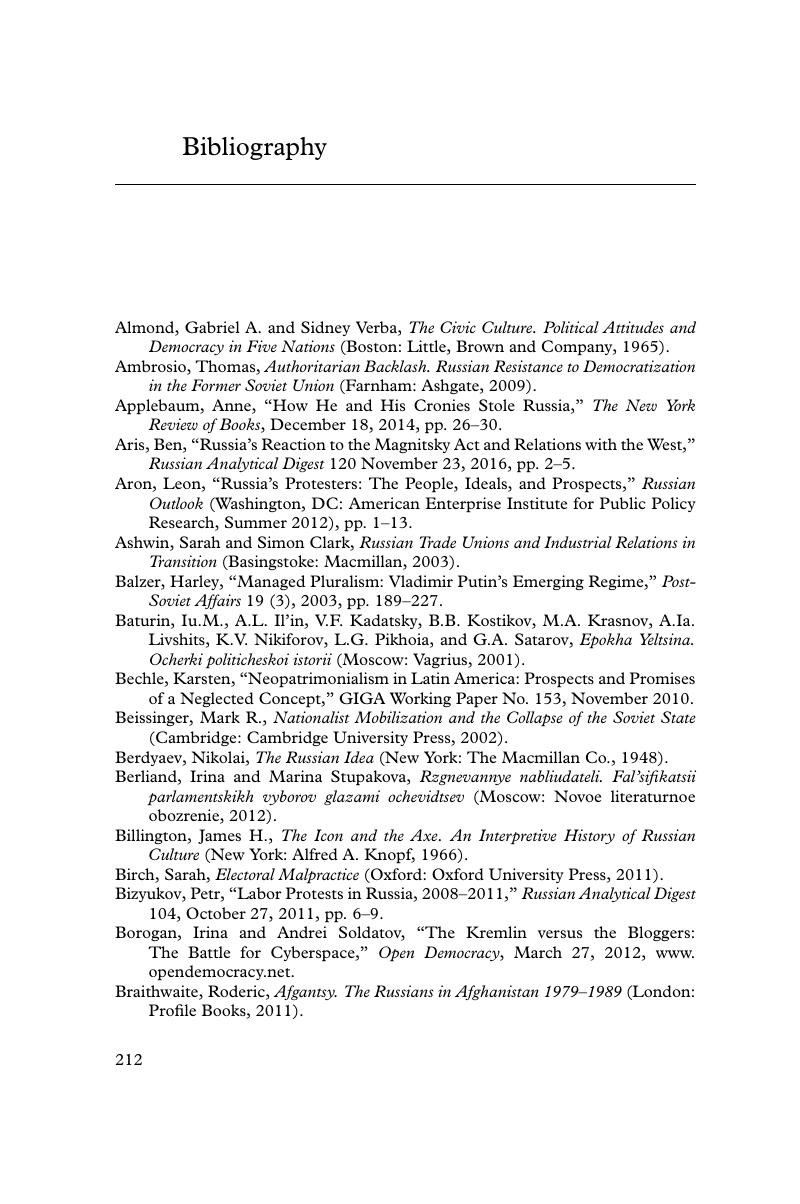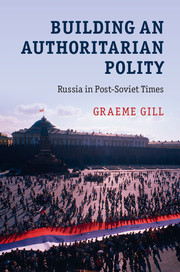Bibliography
Published online by Cambridge University Press: 05 November 2015
Summary

- Type
- Chapter
- Information
- Building an Authoritarian PolityRussia in Post-Soviet Times, pp. 212 - 225Publisher: Cambridge University PressPrint publication year: 2015



